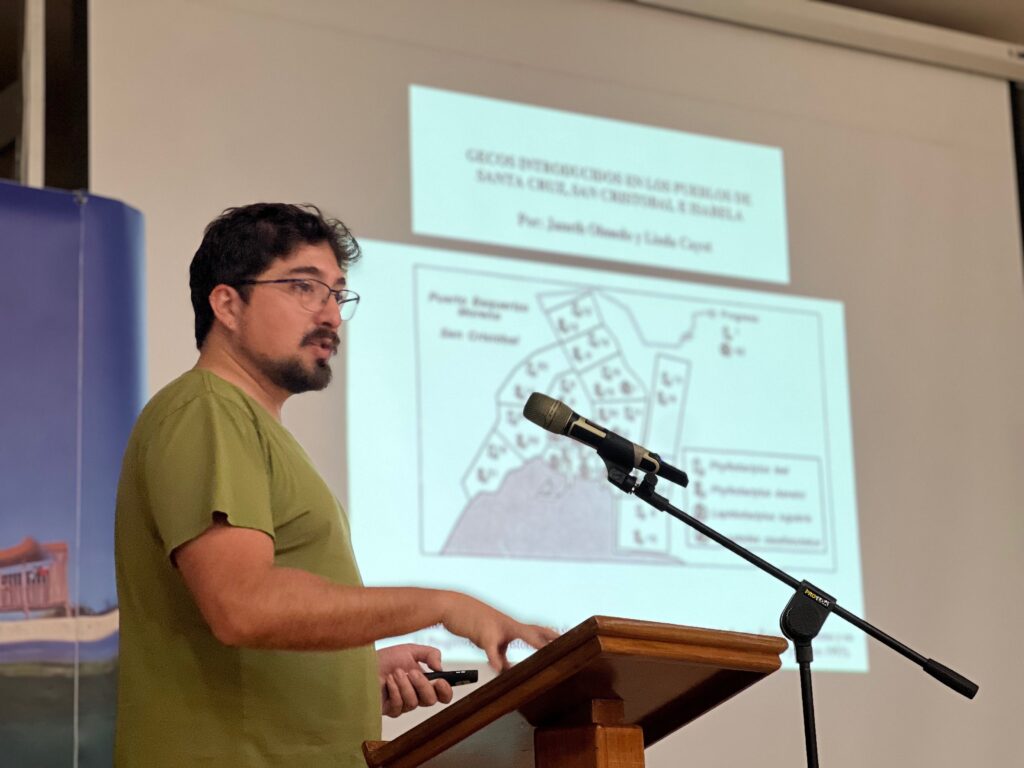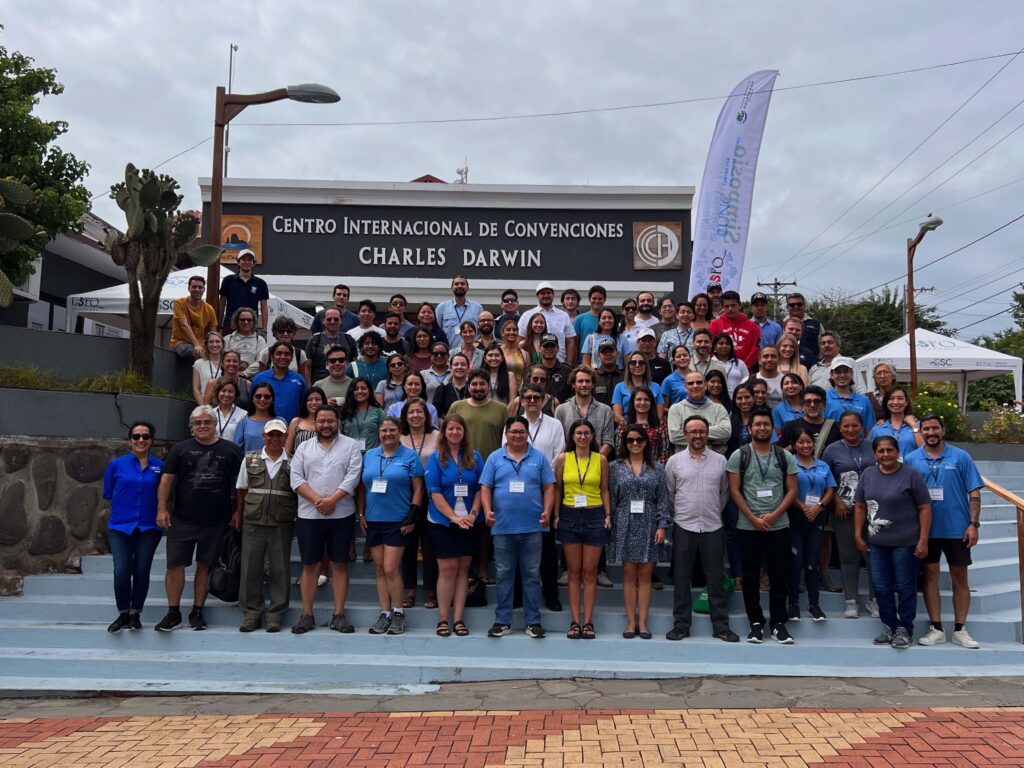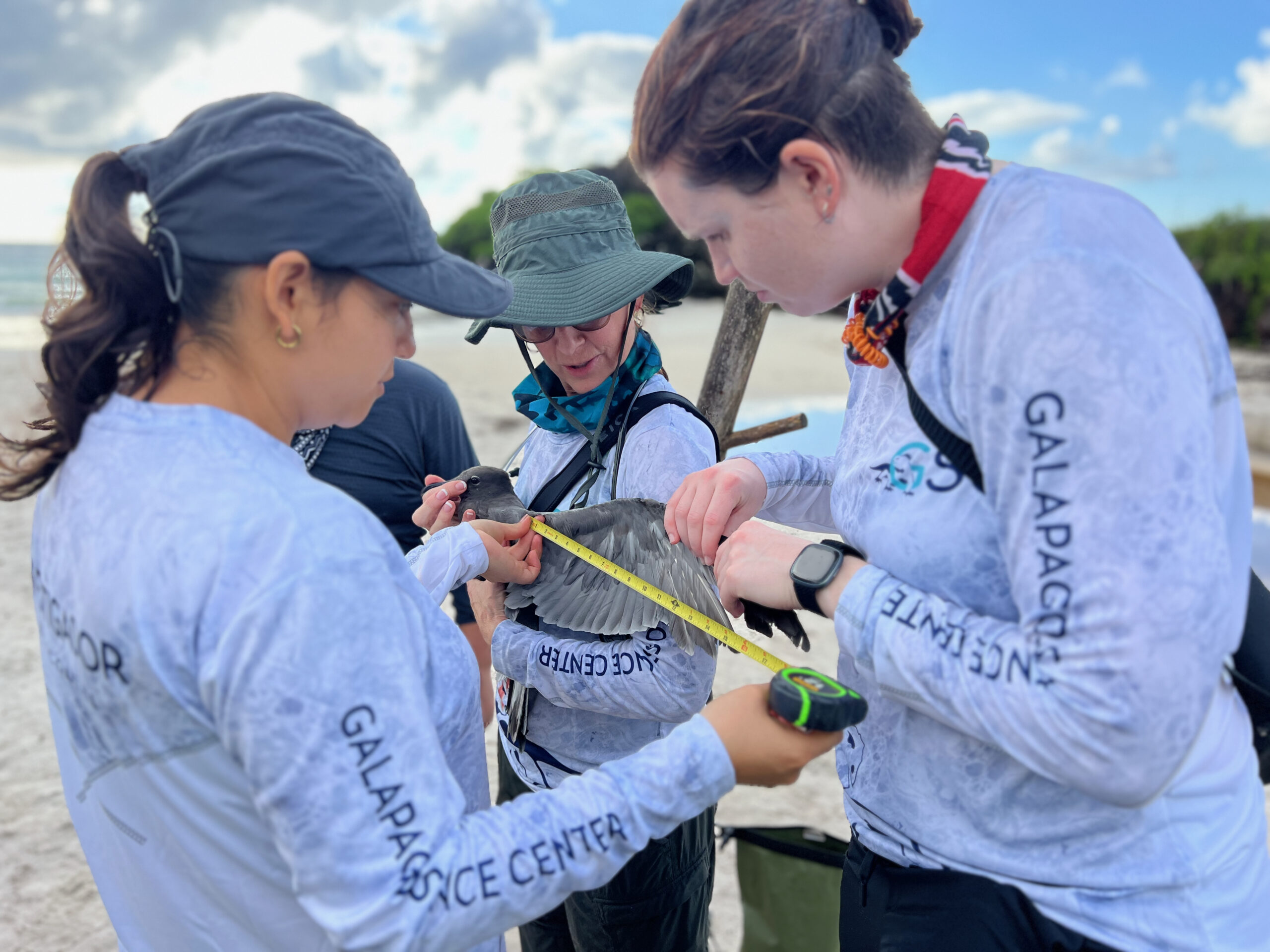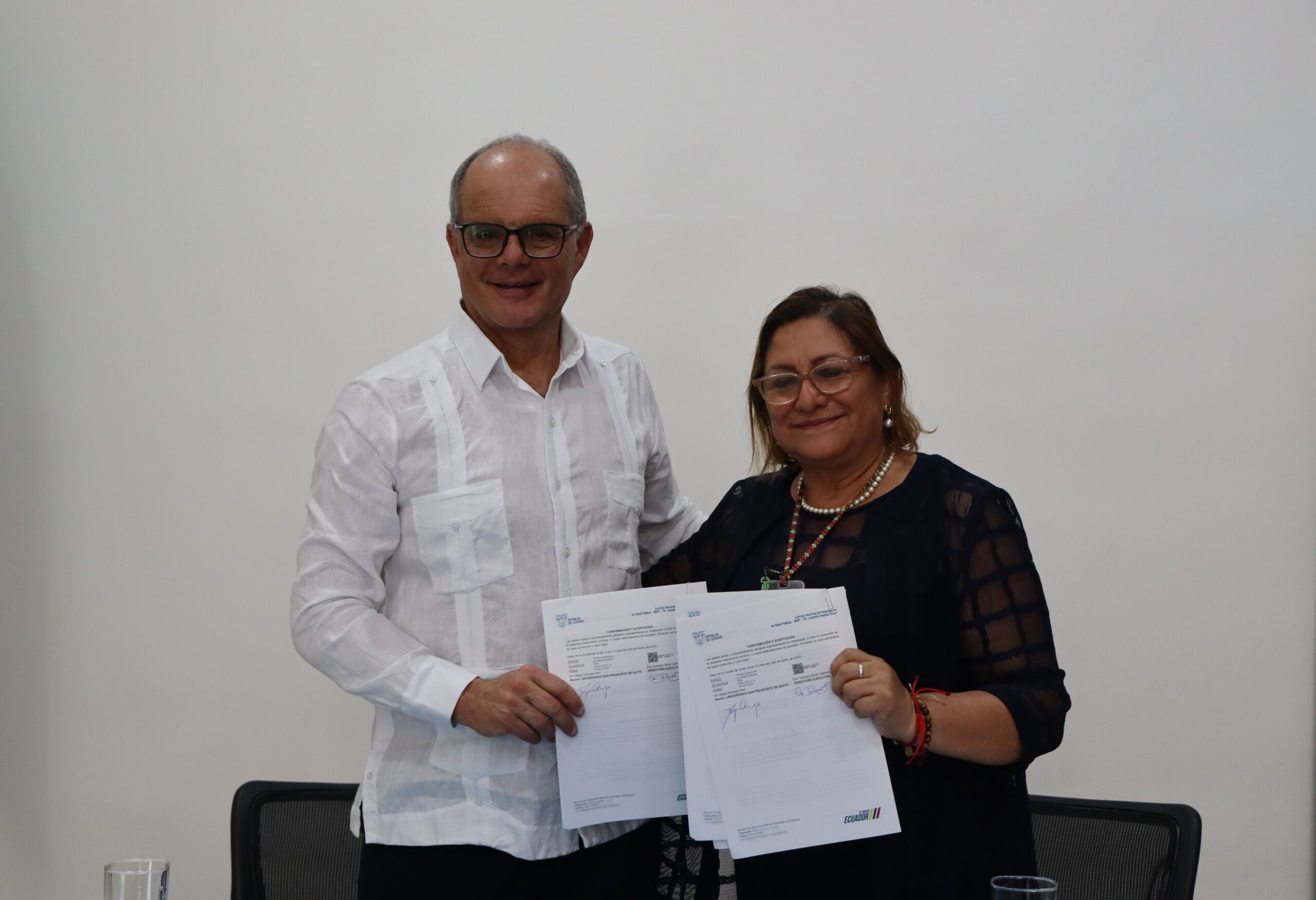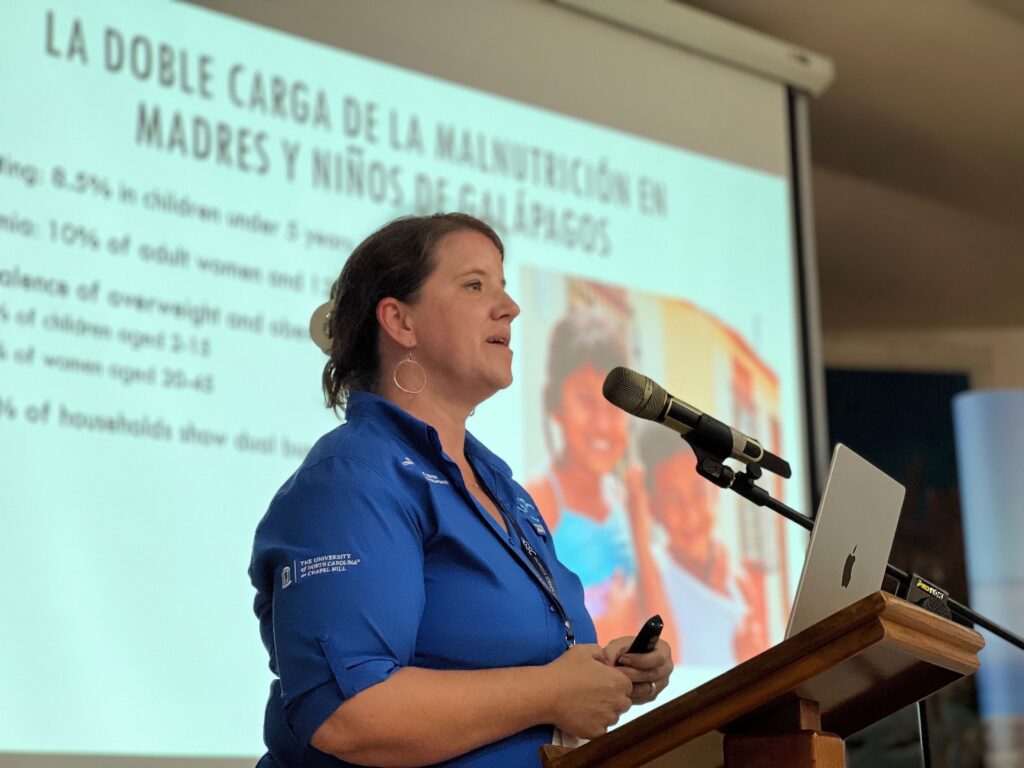
“There is no health of humans and the ecosystem without understanding both and how they interact,” said Amanda Thompson, Co-Director of the Galapagos Science Center and Co-Director of UNC Center for Galapagos Studies. “The Galapagos is a place where people live their daily lives and are interacting with the animals and the environment. We have to understand their needs and challenges to be able to preserve both their health, the health of the community, as well as the larger ecosystem.”
The inaugural symposium took place in June 2016 and, since then, it has been an eagerly anticipated annual event. “It is a wonderful way to bring scientists together with the Galapagos National Park and local citizens,” said Steve Walsh, Founding Co-Director of the Galapagos Science Center. The Galapagos Research and Conservation Symposium is organized by the Galapagos Science Center, a joint collaboration between the University of North Carolina at Chapel Hill and the Universidad San Francisco de Quito. These institutions work hand in hand to ensure the symposium’s success and create a space where experts and community members can come together to contribute to the protection and restoration of Galapagos’ precious ecosystems.
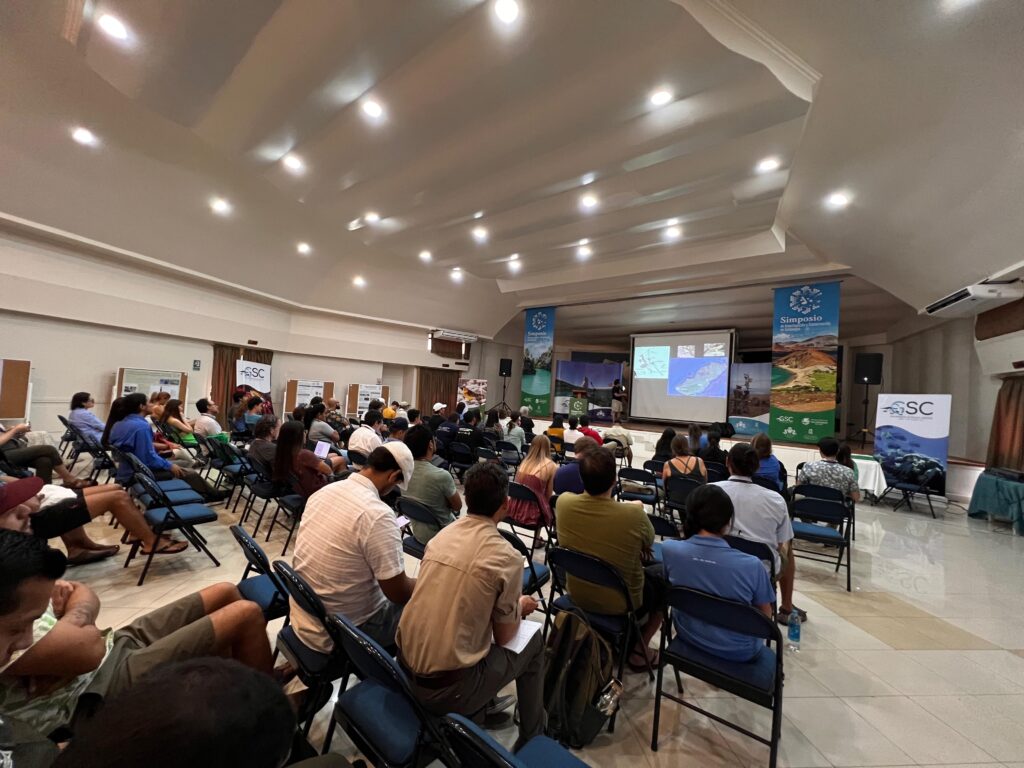
The primary objective of the symposium was to emphasize the importance of research as a driving force for seeking solutions. It served as a platform to share national and international conservation efforts and highlight the ongoing work towards the preservation of Galapagos’ marine and terrestrial ecosystems, as well as address topics concerning the local community and the health of the vulnerable island population.
“I believe that it has been very important to share the results of my research with the community because what we want is to provide a management and conservation tool for the corals in Galapagos. Without the support of the community, this would not be possible,” said Margarita Brandt, researcher at GSC and professor at USFQ.
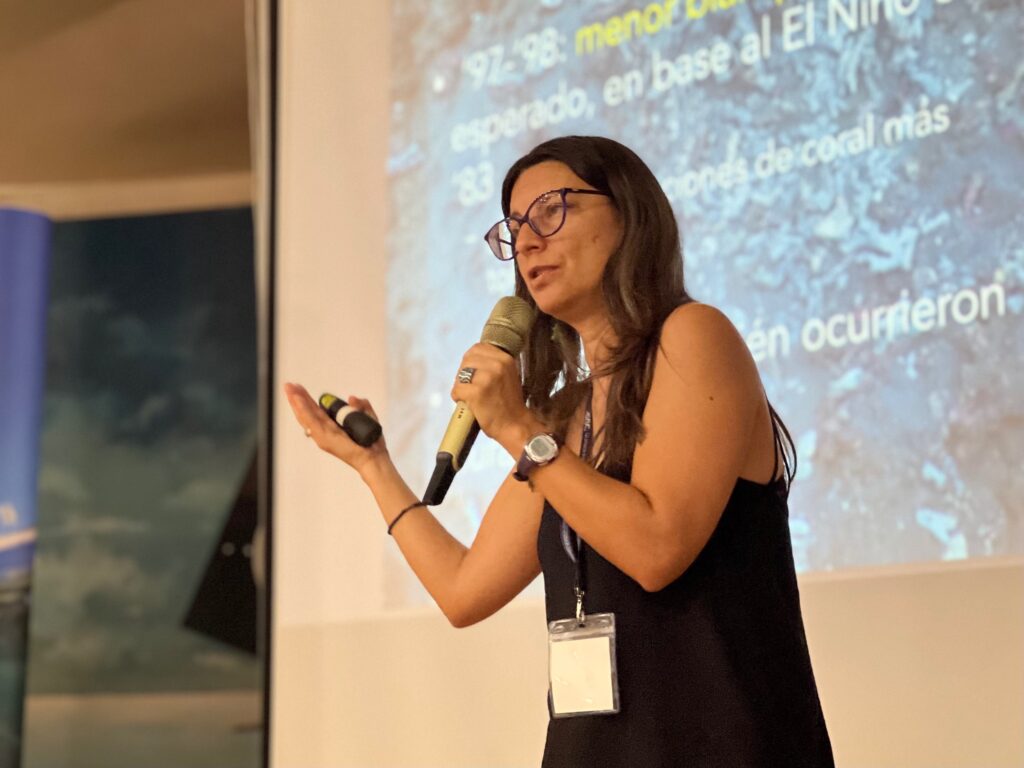
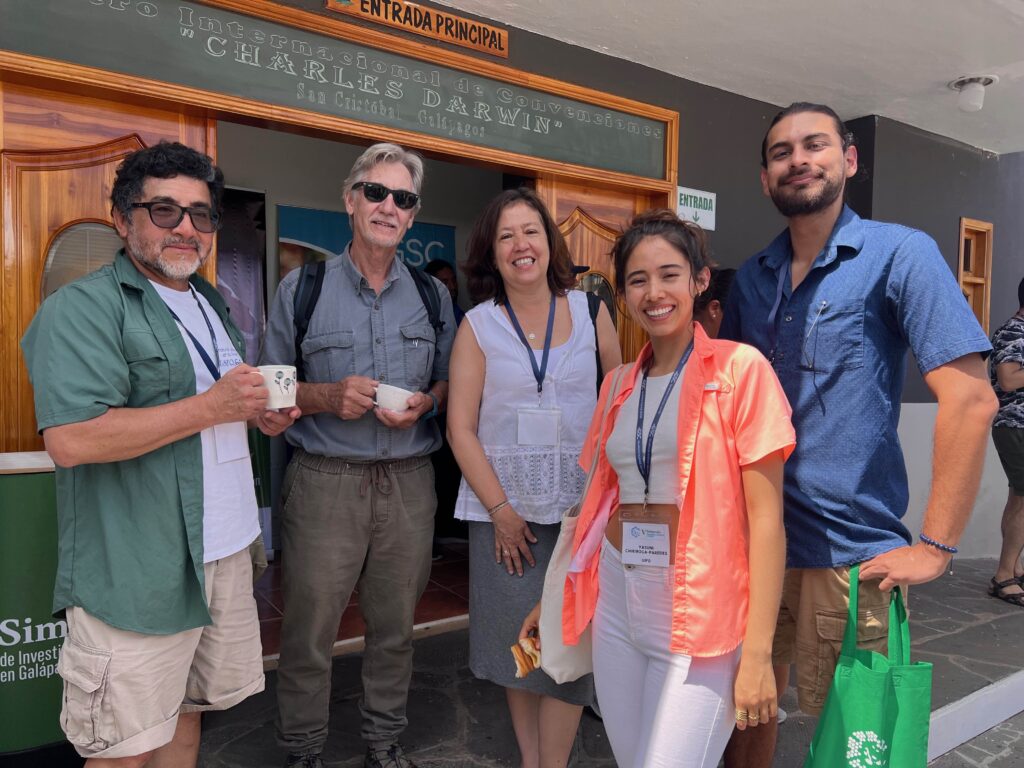
The symposium featured 50 presentations covering a wide range of topics, including oceans, biodiversity, conservation, environmental change, community dynamics, and health-related issues. These presentations offered a comprehensive overview of the current state of knowledge and ongoing efforts to safeguard the unique biodiversity and delicate balance of the Galapagos Islands.
“For me, it has been super exciting to be at this symposium because while I was a student, I was part of the audience, and this is the first time I was able to present my research on geckos in the Galapagos. Throughout these years, I have been able to see how this space has grown. This time, I saw people from the community involved, members of the police, and researchers from other institutions. It has been a pleasure for me to share the stage with all of them,” said Mateo Dávila, researcher at GSC, coordinator of the Instituto de Biodiversidad Tropical at USFQ.
